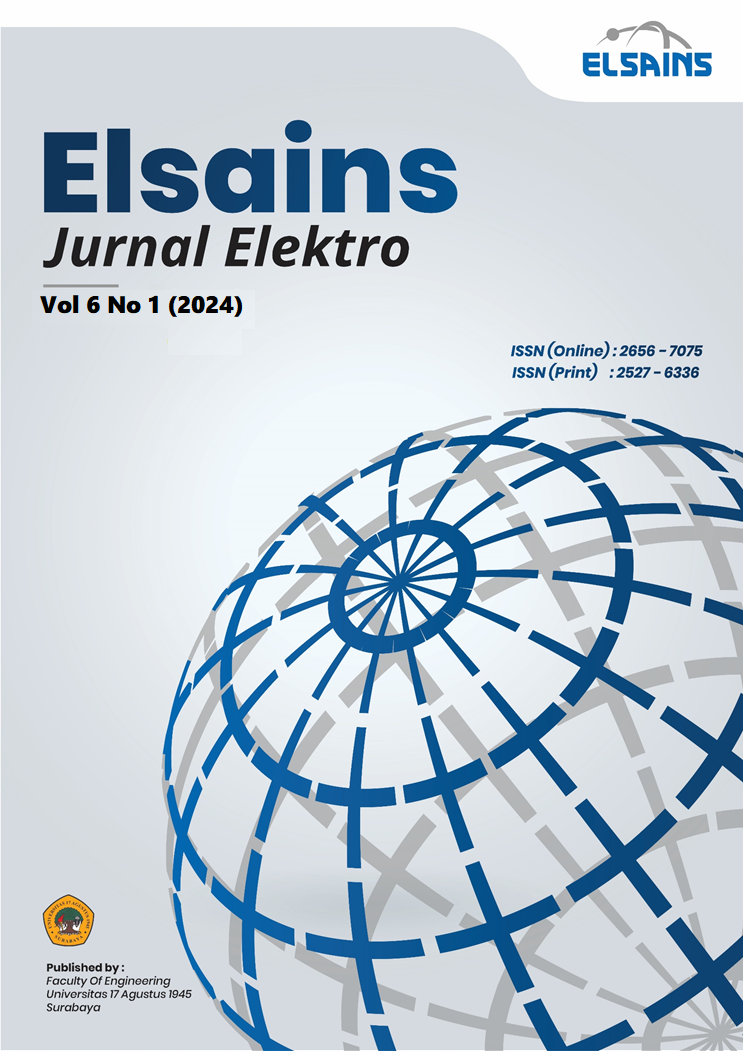RANCANG BANGUN ALAT PEMBERSIH SOLAR PANEL MENGGUNAKAN WIPER DAN ROLLING BRUSH SECARA OTOMATIS BERBASIS MQTT
DOI:
https://doi.org/10.30996/elsains.v6i1.10309Abstract
Electrical energy has an important role in human life, most electricity sources still use coal and petroleum, causing these sources to become increasingly depleted, therefore alternative electrical power sources are urgently needed. The use of solar energy is an effort to reduce global carbon emissions. In the implementation of solar panels as a daily generator of electrical energy, there are several factors that cause the performance of the solar panel to decrease, such as the outer layer of a solar panel being covered by dust or other obstructing materials. Several studies have been carried out to optimize the power output from solar panels by using solar panel cleaning systems. This final project aims to design and build a solar panel cleaning device using wiper and rolling brushes automatically based on MQTT. From the test results of this tool itself, it was found that the average voltage was 0,29 V without using water and 1,07 V when using water. Then, from the results of the experiments and tests, it was found that the voltage suitable for driving the DC motor for the rolling brush was 7.73 V, 8.01 V for the right wheel motor, and 9.05 V for the left wheel motor.
Downloads
Downloads
Published
Issue
Section
License
Authors who publish with Elsains: Jurnal Elektro agree to the following terms:
- Authors transfer the copyright and grant the journal right of first publication with the work simultaneously licensed under a Creative Commons Attribution-ShareAlike 4.0 International License.. that allows others to share the work with an acknowledgement of the work's authorship and initial publication in this journal.
- Authors are able to enter into separate, additional contractual arrangements for the non-exclusive distribution of the journal's published version of the work (e.g., post it to an institutional repository or publish it in a book), with an acknowledgement of its initial publication in this journal.
- Authors are permitted and encouraged to post their work online (e.g., in institutional repositories or on their website) prior to and during the submission process, as it can lead to productive exchanges, as well as earlier and greater citation of published work (See The Effect of Open Access)








